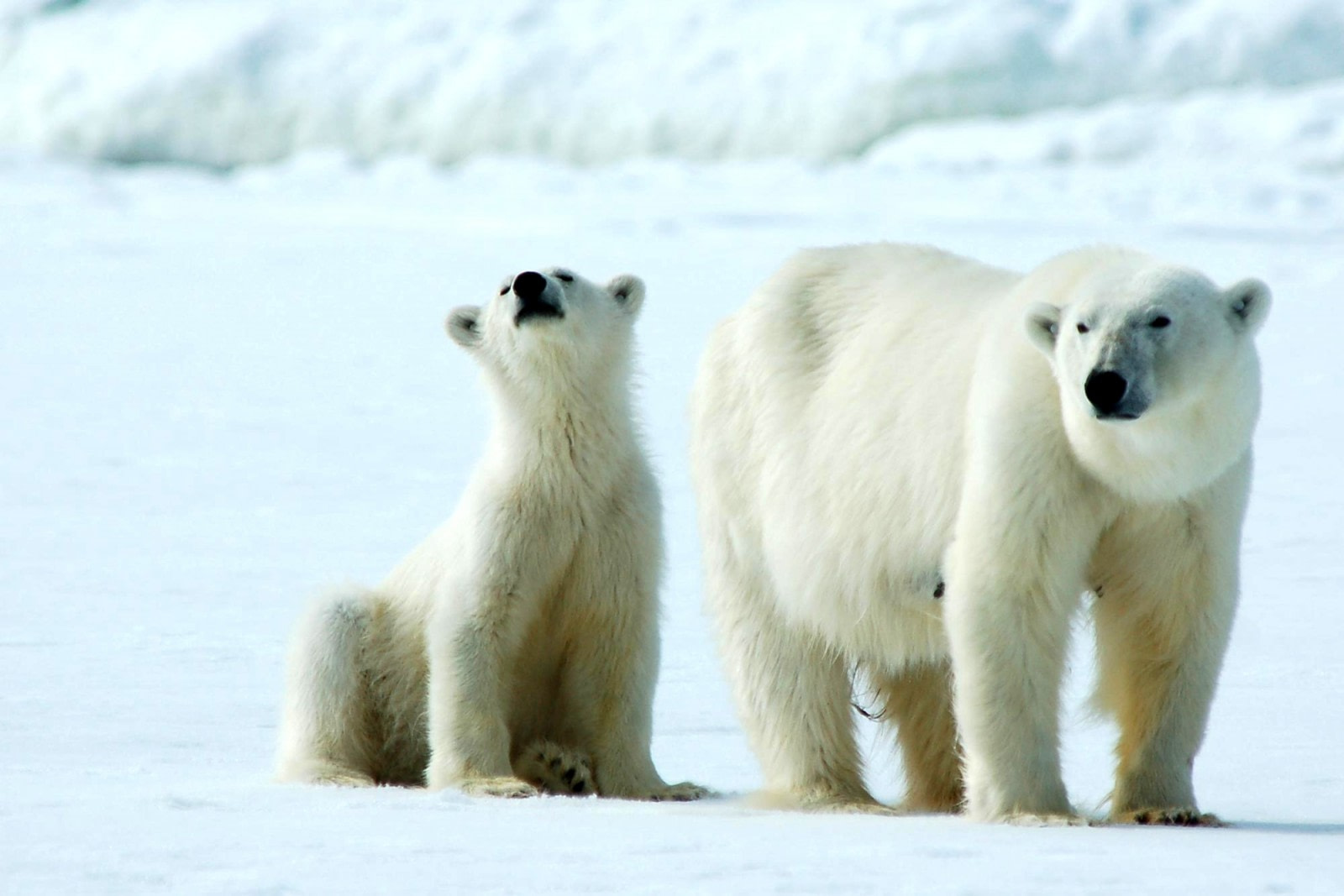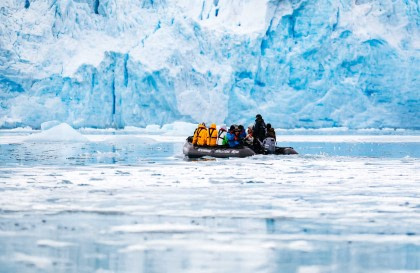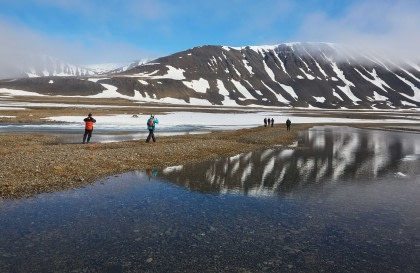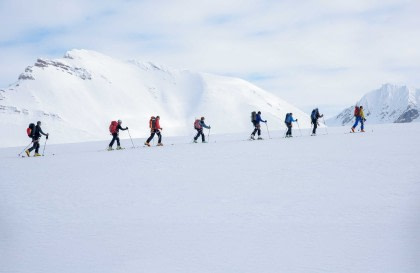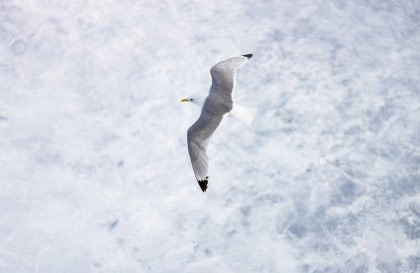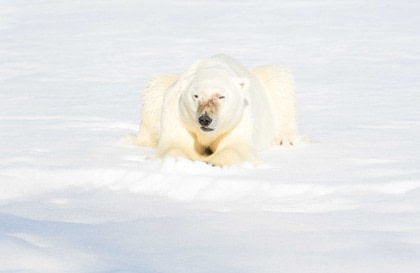Meat, Mate, Move: a Polar Bear Story
You creep over the ice to the small dark hole, moving silently as the wind in your fur.
At the bottom of the hole, within reach of your tensing paws, lies a black circle of lapping seawater like the pupil of some large and unreadable eye.
The water is deep and cold and full of food. You know this because you were just swimming in it not far away, and over the waves you saw several little creatures spying on you before they dived away in swift, bubbling streaks through the water.
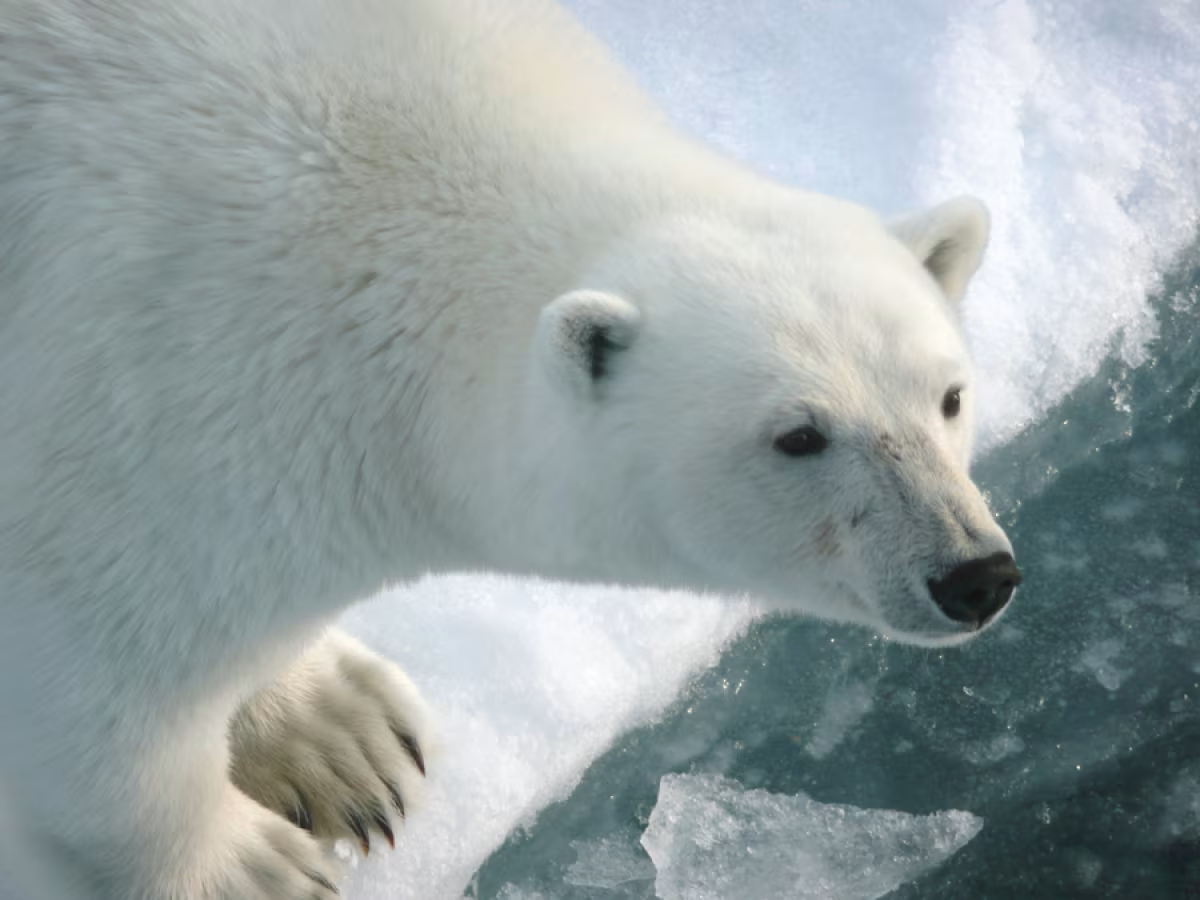
Your fur, sleek and white with a recent molt, steams in the sun as you wait for one of them to return. Time passes, but the sun never moves and the wait is nothing.
You love the wait. The wait, sometimes, brings food. Meat for your cub, blubber for you.
Your cub - quiet and keeping his distance, just like you taught him - is also waiting. It’s right that all he does is wait and watch for now, like you did with your mother.
Time enough for his own kills later.
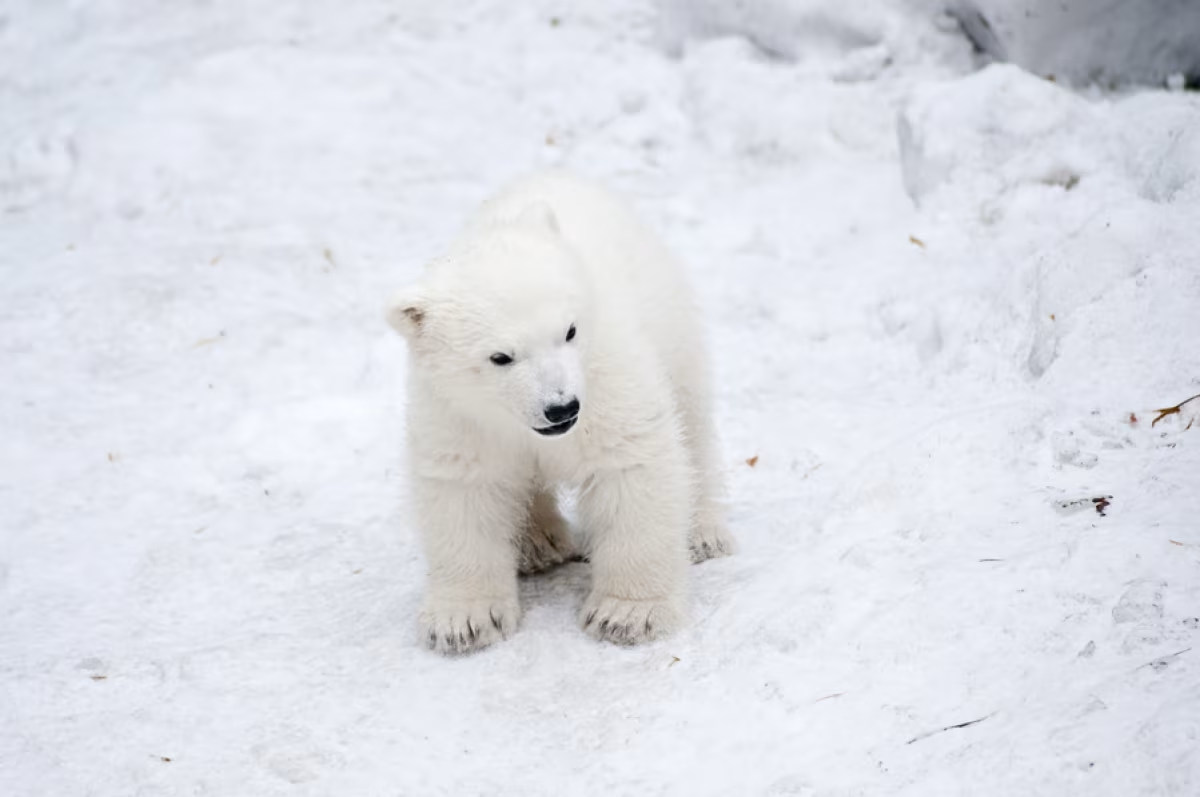
Suddenly the water stirs, the air changes.
A small, shiny head pokes out of the hole.
By the time you see it, you’re already leaping.
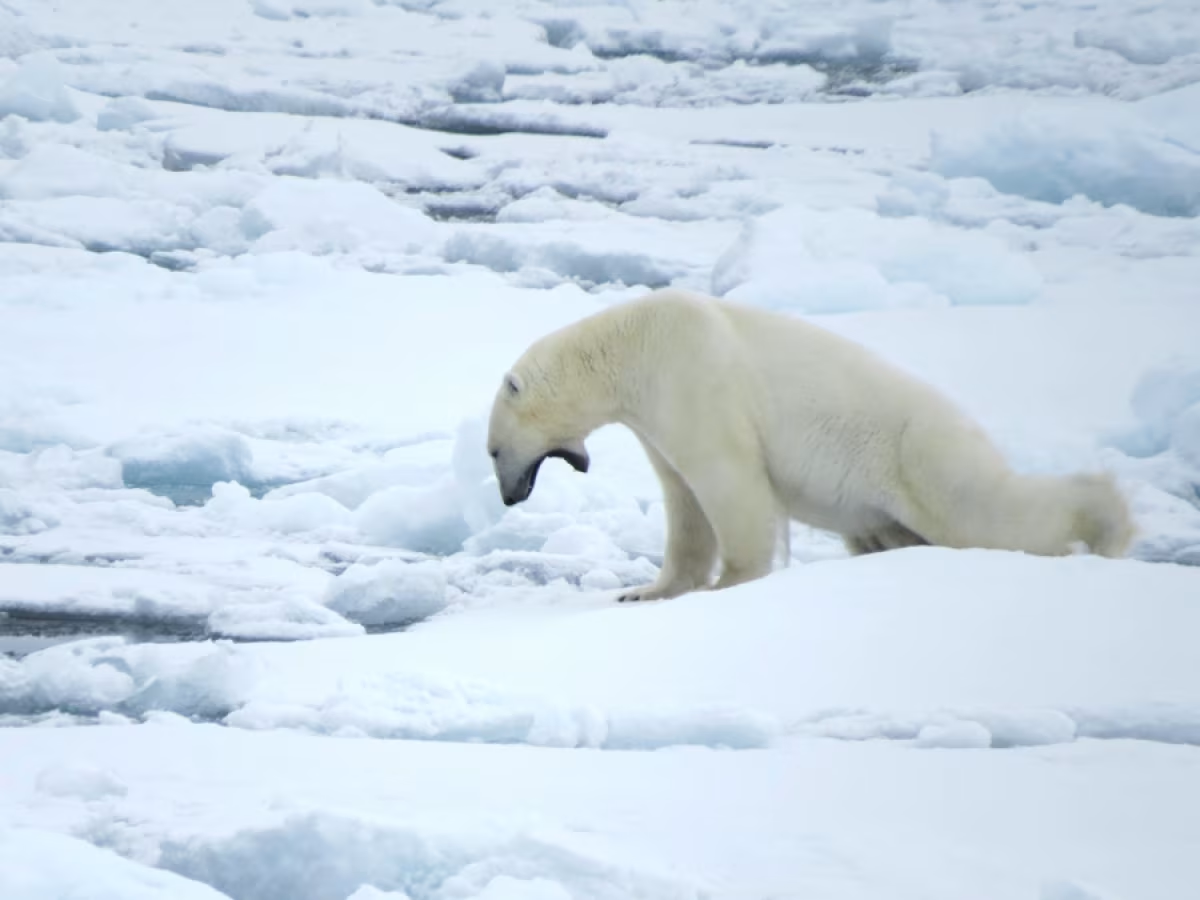
The seal twists around in the water - not fast enough.
Your paws lock around it, your teeth lock in, and there’s a maddening burst of heat between your jaws. The seal thrashes for an instant, then goes limp. A muffled crunch inside its plump, pliant body tells you its struggle is over.
You wriggle back out of the hole, tossing the kill onto the ice.
Your cub looks at you and you at him. You’ve both spent several dips of the sun swimming and tracking and walking without anything to show for it until now.
And now it’s time to eat.
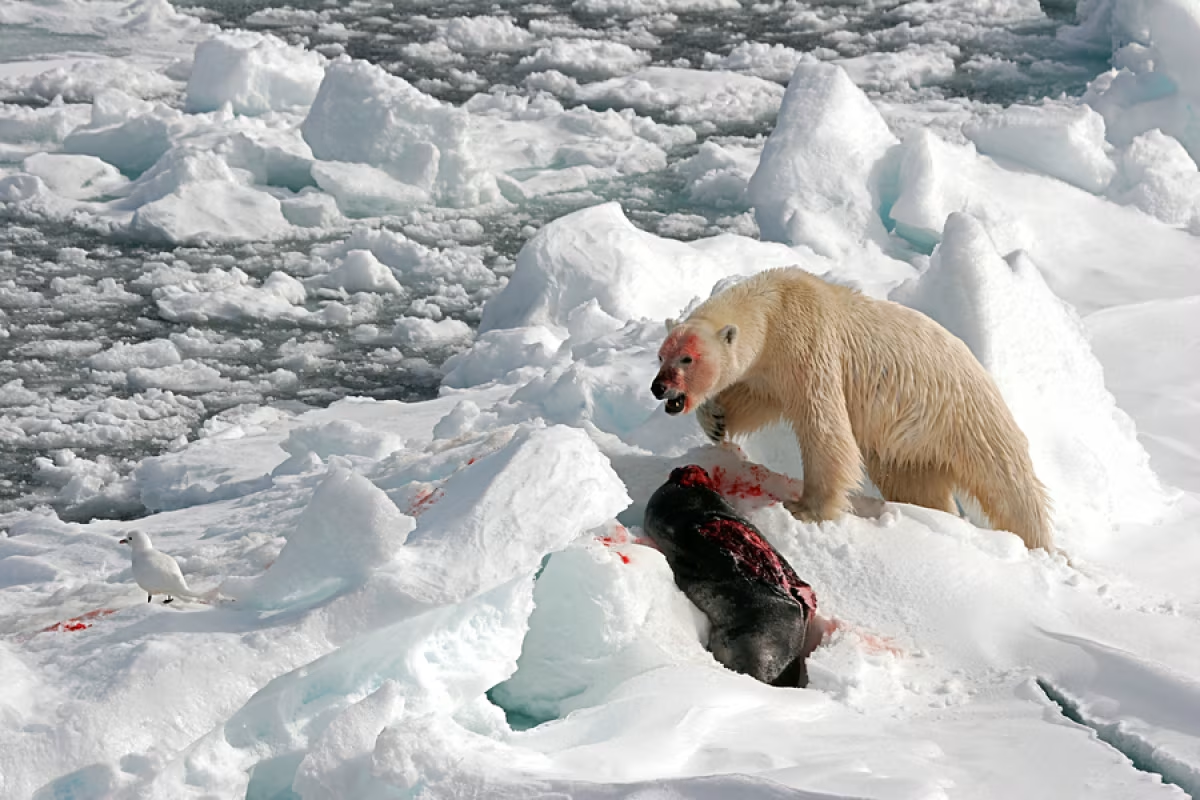
Today’s kill came just in time.
You’re past the cold season already, and the hot season will soon be on you.
The sky is getting brighter all the time, the ice is thinning. When it’s gone, the seals won’t need breathing holes like the one you found today. You’ll have to catch them on the land.
This is much harder. And in the water, it’s barely worth trying.
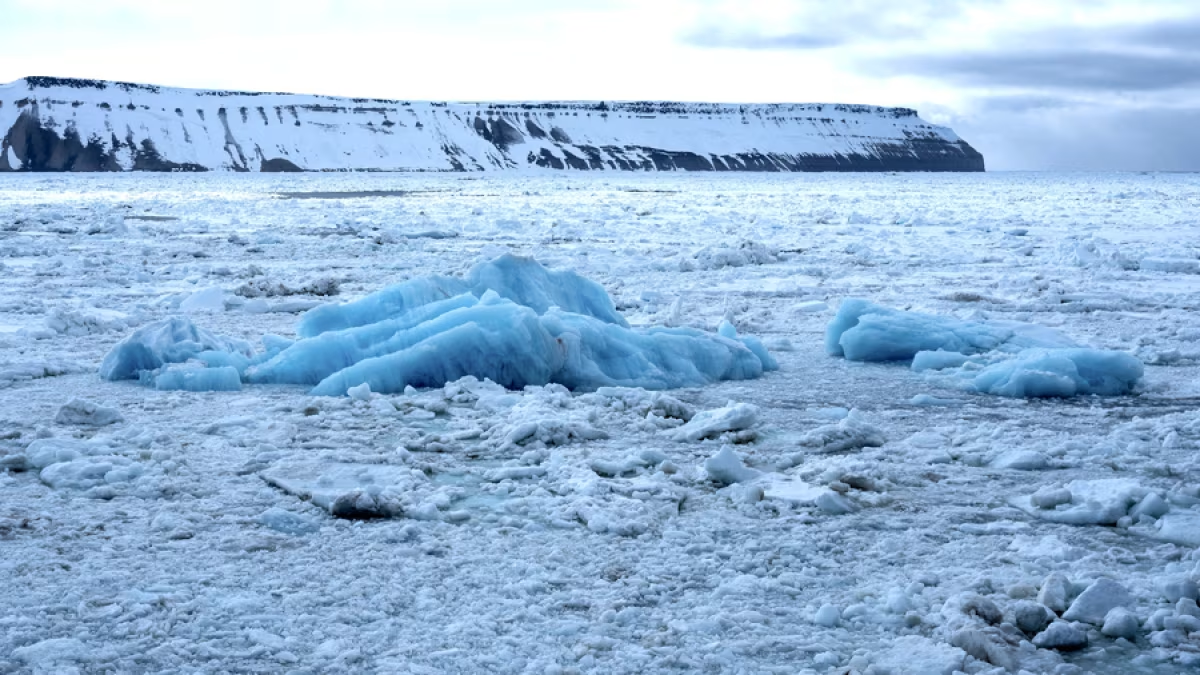
Eating your fill of seal, you flop onto the ice and let your cub gnaw the rest.
He’s survived his first cold season. You’ve survived four or five, maybe. You spent most of the last season just walking in the dark, keeping him alive.
Everything now is about keeping him alive.
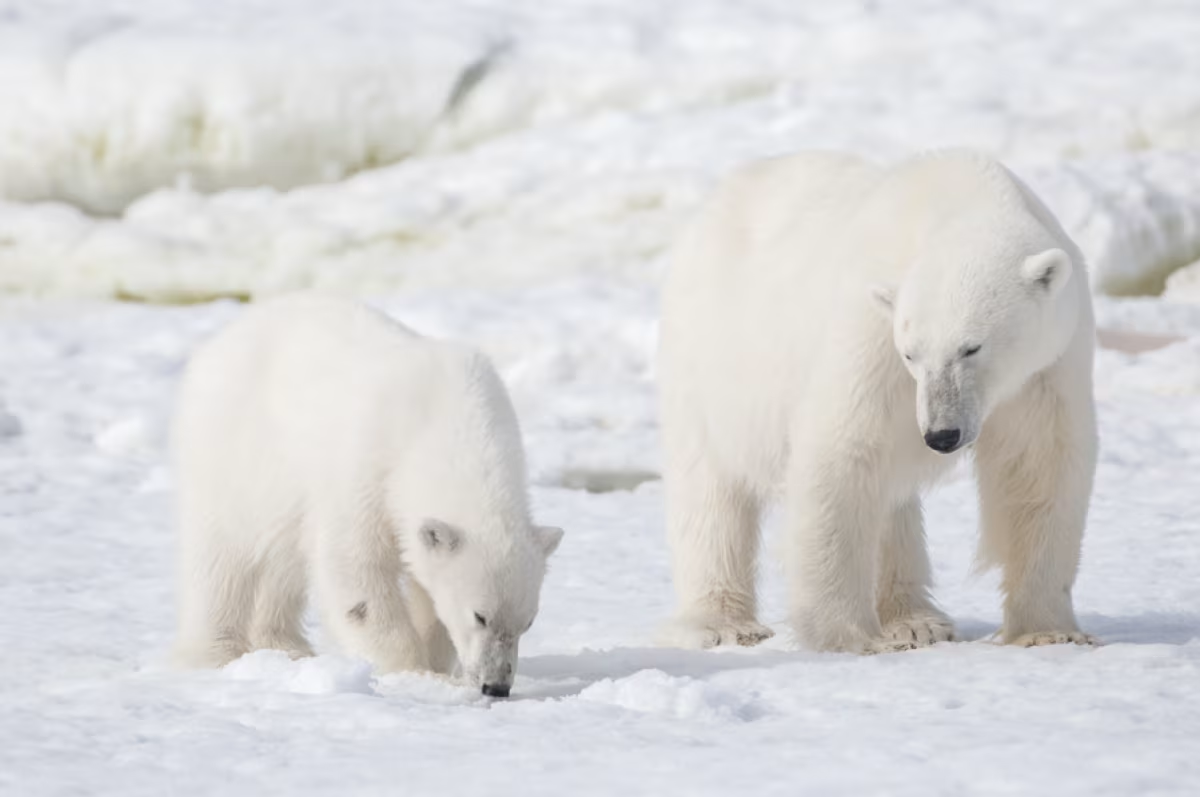
You had more cubs once, but he’s the only one left.
A litter of three came out of you one day during the cold times, three blind and bloody things slippery as the seals you like to hunt. One cub was eaten by a male not long after it was done taking your milk, another was born runty and crippled.
That one you ate yourself.
The rule of food is that it’s always scarce, even when it’s abundant.
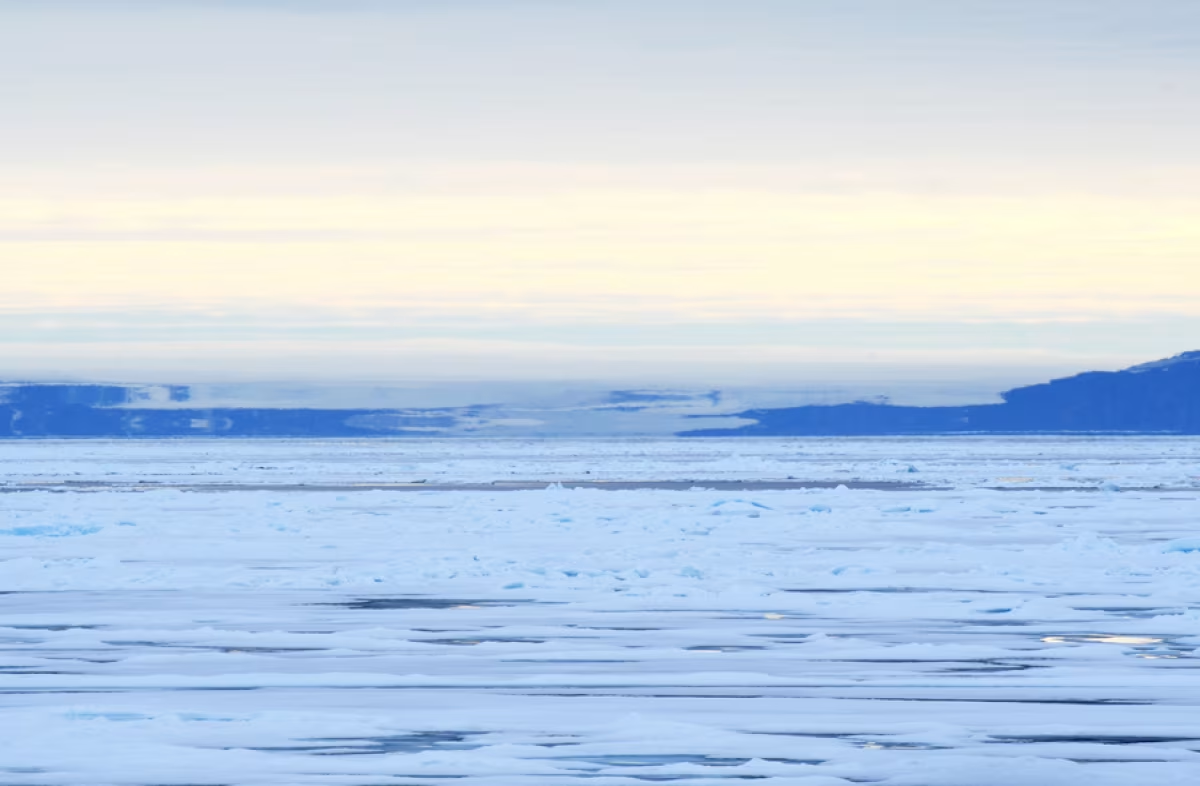
A quiet feeling fills you as you watch your cub feast.
A few more cold seasons and he’ll be old enough to leave you, hunt his own kill, find his own mate. The drive to breed is as great as the drive to eat.
Actually, your cub looks very much like your mate - wherever he went.
That one found you when light was coming back into the sky and the days were lengthening, one of two males who followed your scent through the wakening air of the warming time.
They had battled for you, a long and snarling dance that nearly killed them both.
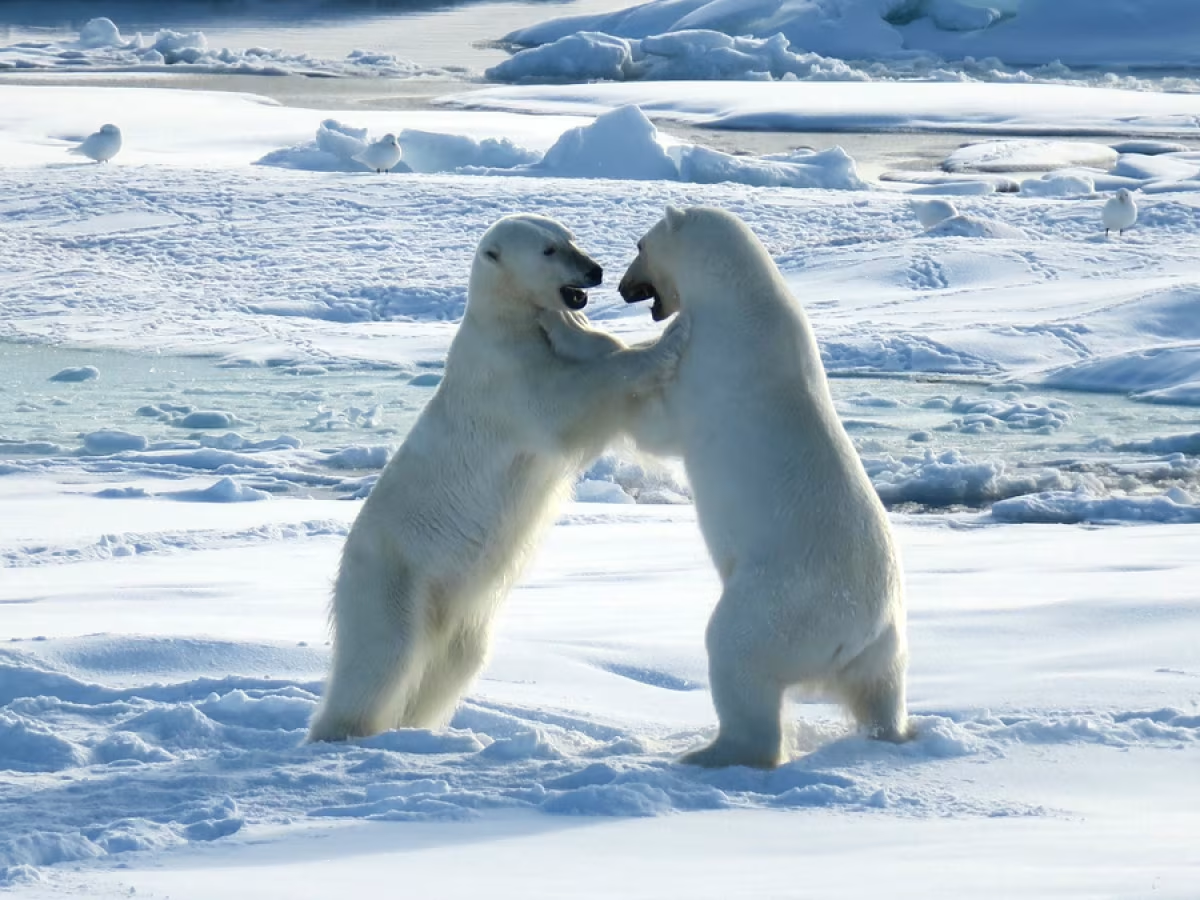
After you had bred with the victor, you went off to gorge yourself on all the food you could kill. You dug a deep hole in the snow. You slept in it for a long, long time.
All your strength had needed to go to the cubs growing inside you.
When you had woken up, your mate was gone and your belly hung with life, dragging in the high snow. And after your young were born, food came easy for a season.
But that was a different time, gone maybe to the same place your mate went.
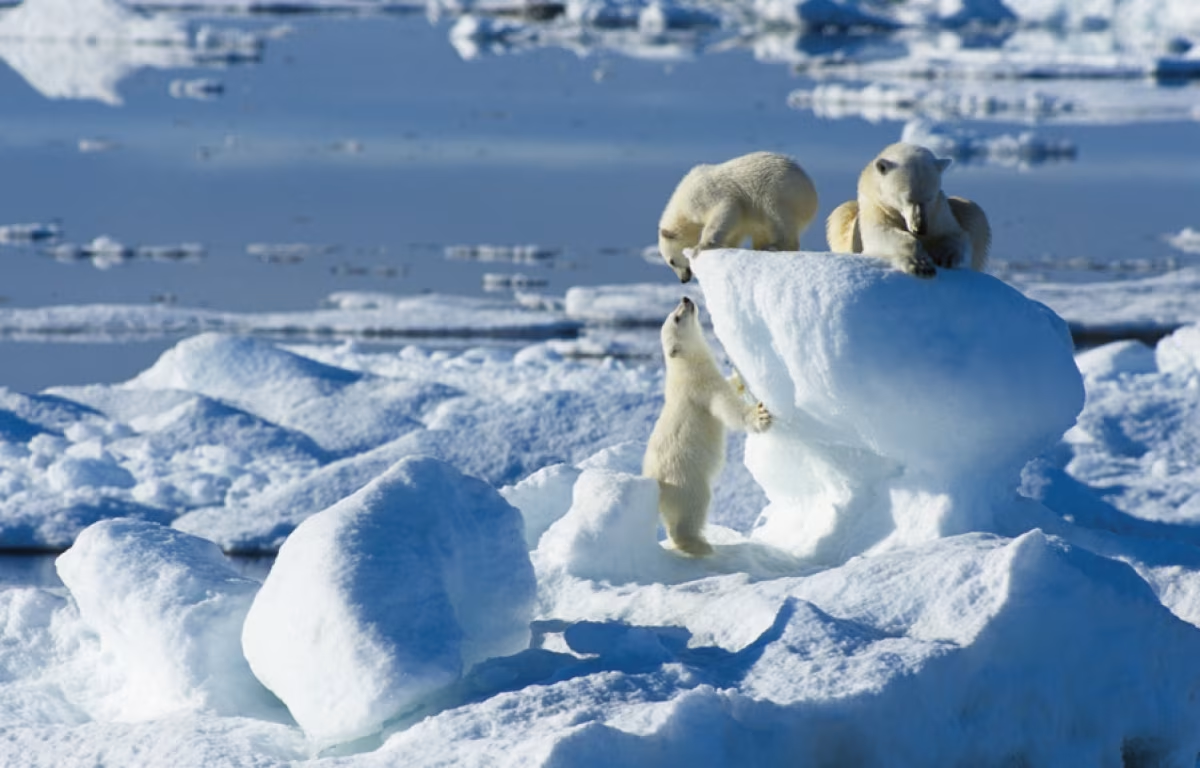
You put the memory away, feeling your cub nuzzle against you. His full stomach and the shared heat of your bodies are already putting him to sleep.
Both of you have licked yourselves clean, and all that’s left of the seal is a scatter of bones and a few dark stains in the snow. The birds are waiting nearby, blinking their black-dot eyes in wary expectation, eager to clean up the scraps.
Time to let them.
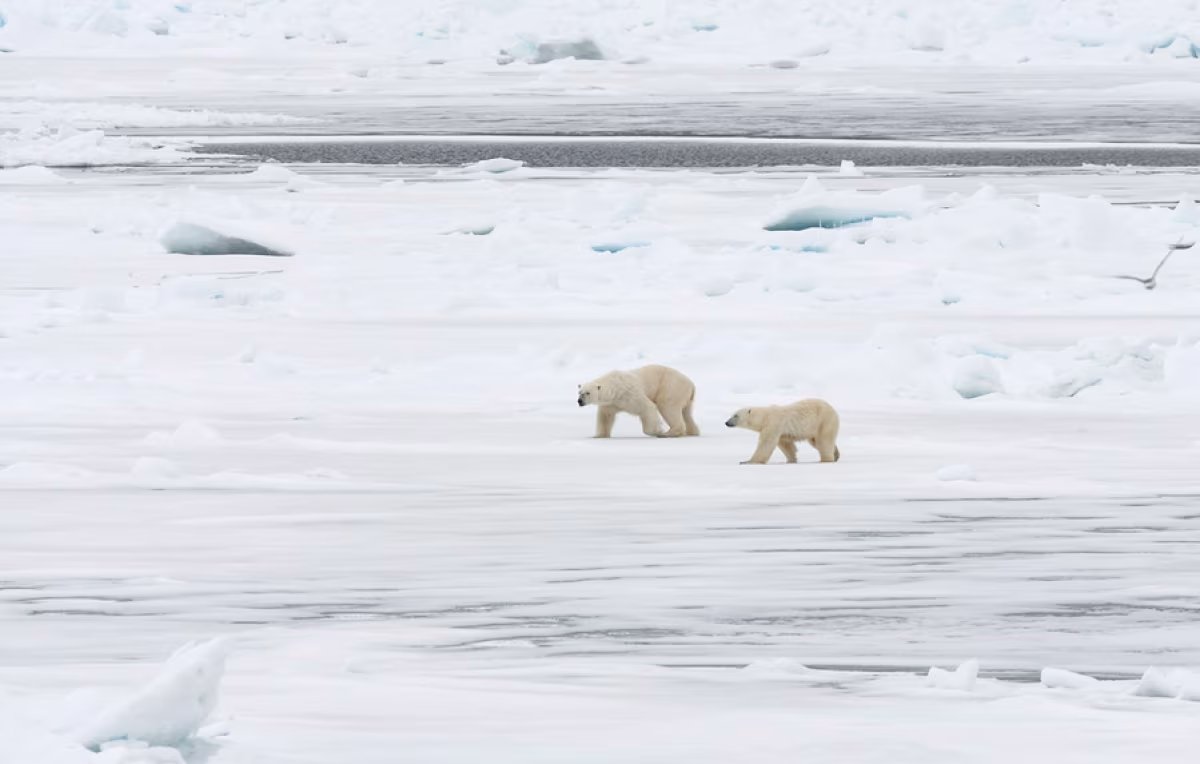
You lead your cub across the ice, then dive into the salty water.
He swims behind you, staying close as you paddle for land. Despite today’s success with the seal, there’s always more food near land.
Reaching shore, you at once begin sniffing down its rocky, jumbled line.
A conversant upwelling of scents immediately volunteers itself, rising out of the earth and rock and foamy brine, teasing your nose, sweating across your tongue - mysterious pulls of varying urgency that play through your stomach into your legs, making them move.
Each time you look back at your cub, you think he’s grown larger, more sure on his feet.
And his face looking back at you, as much as it resembles your mate’s who is gone, looks also like the one you see in the water when you bend to it to drink.
One day, you know, you’ll only be able to see your cub again by looking in the water.
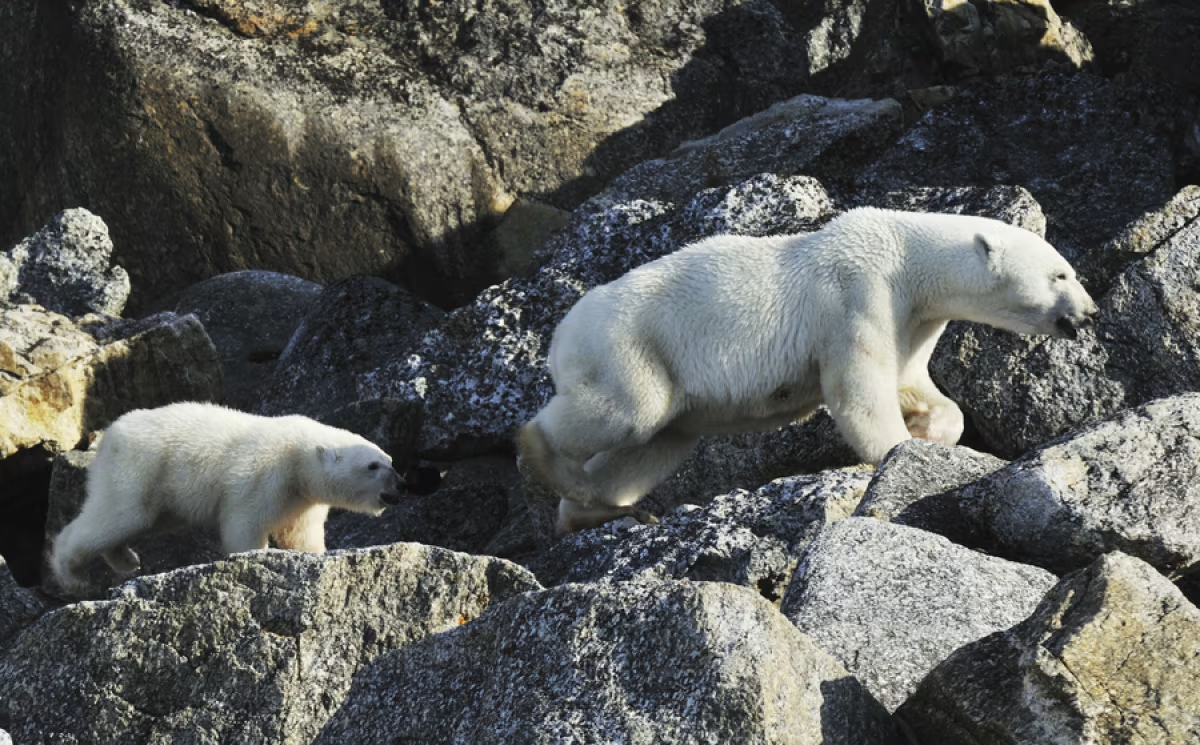
A short while later, you smell them.
Two males are hunkered on the shoreline ahead, shuffling around a dead whale, bloody and fat with bloat, but not rotten. This is a rare feast.
Should you risk an approach?
The males are glutted on blubber, so they should be calm enough and have no real interest in your cub. And anyway, you’re both so hungry again. The seal is long gone from your bellies, and always the sun is getting hotter.
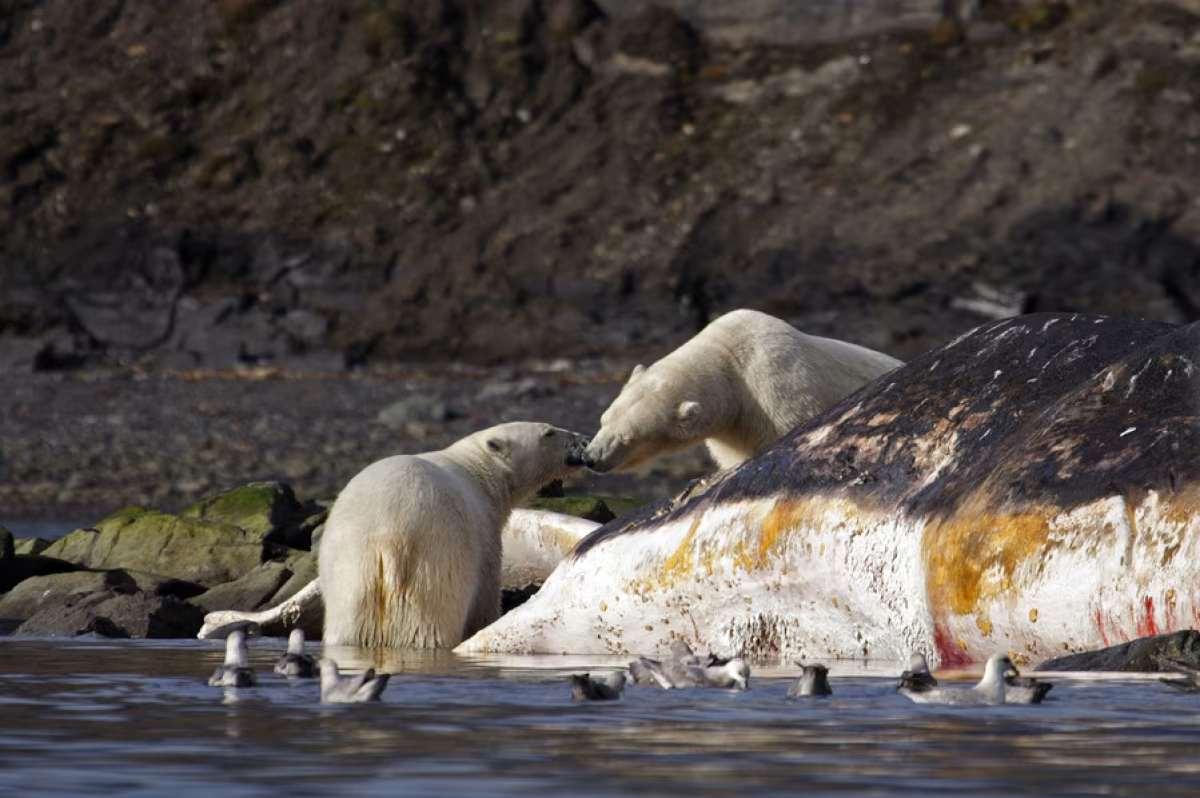
Keeping your cub safely behind you, you move close enough for the males to see you.
You show the due respect, circling downwind of the larger lead male. He eyes you and noses at the whale some more, but he does not seem particularly interested in your presence. The other male just watches you both, waiting.
Reassured, you continue closer and are nearly to the whale yourself when abruptly the lead male stops sniffing, faces you, and voices a long, low growl.
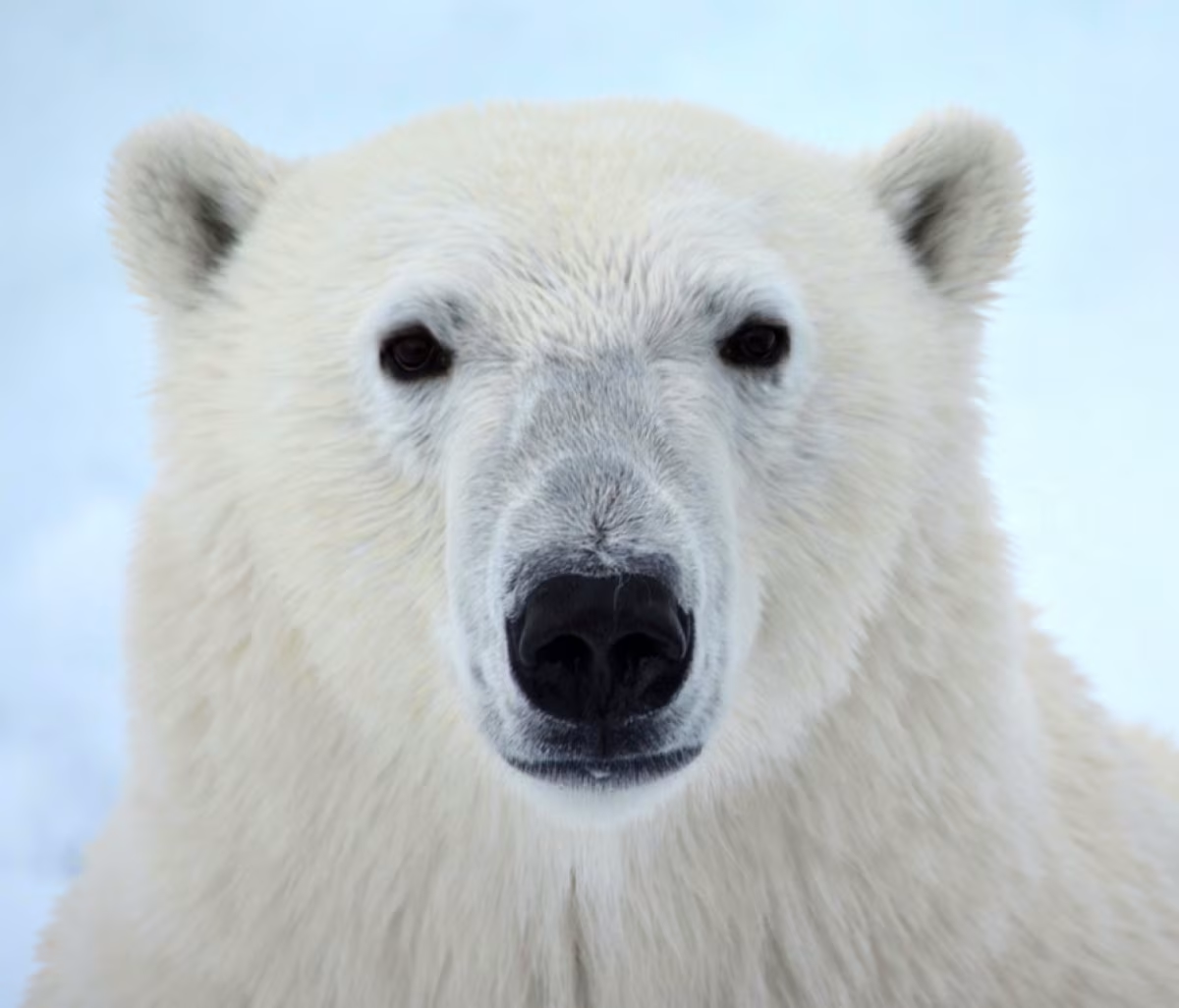
It seems you’ve made a terrible mistake.
The male contracts, seems poised on the verge of a charge.
He’s far larger than you, and worse yet he has the taste of blood on his tongue. If he advances, you can’t hope to defend your cub against the other male too. You may not even be able to defend yourself.
But there’s nothing to do now but try.
Lowering your head, you make a short warning charge.
The male steps back, but he does not give way. He just stares at you, fur stiff, body tensed, eyes black and impenetrable as that circle of water you ripped the seal out of.
You lower your head again, you charge again.
You exchange slaps, you test each other’s resolve.
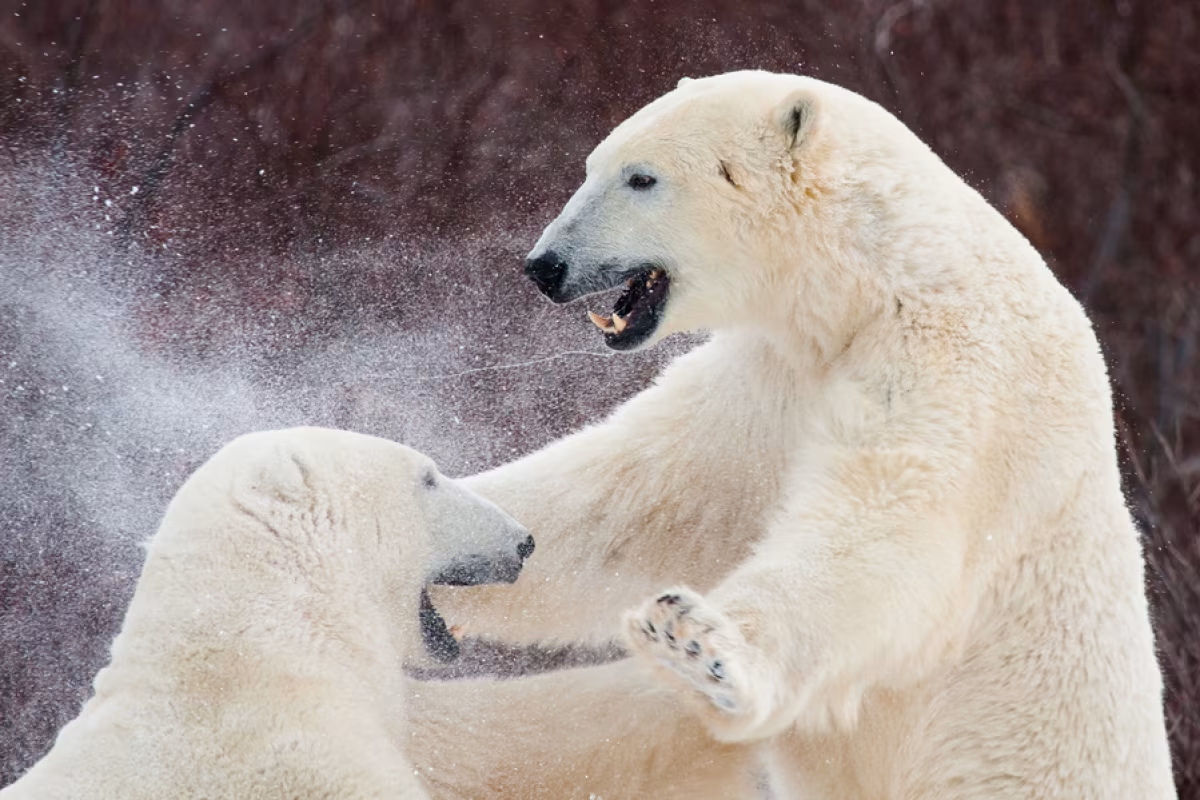
Desperate for a way out, you look back at your cub.
He’s already trembling and has emptied his bladder on on himself, unsure whether to flee or draw closer to you. He voices a plaintive whine, but you can do nothing for him except, soon enough, bleed out on the stony shore while you watch him devoured.
Why did you come here? Why did you risk his life?
No, that much is clear. Because the rule of food is that it’s scarce even when it’s abundant.
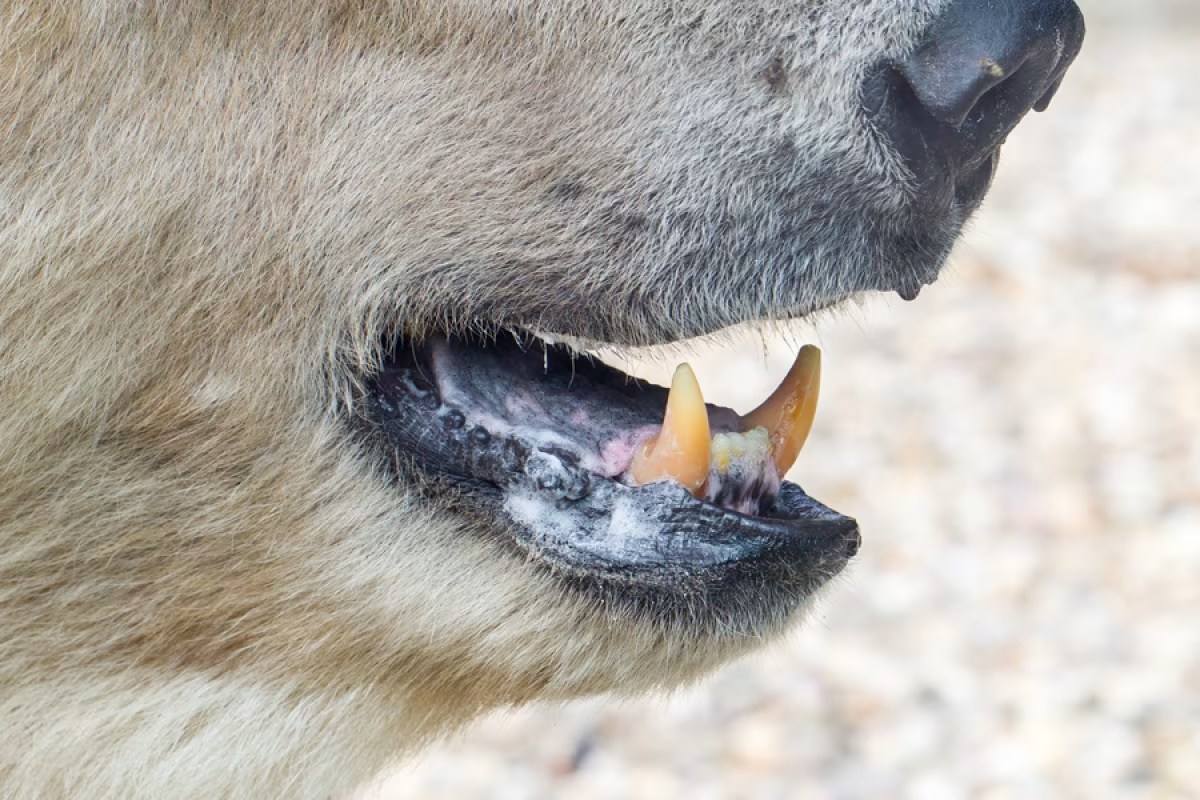
Summoning up your courage, you make one last charge.
You bear your teeth to the gums, you crash your full weight over the rocks, you loose a roar out of the hottest pit of your stomach.
Finally, and to your utter amazement, the lead male backs down. He stays on all fours, he even relaxes, moving away from the whale carcass while the other male, seemingly satisfied at this unexpected outcome, gazes off across the shoreline.
The signal is clear: You may share in the kill.
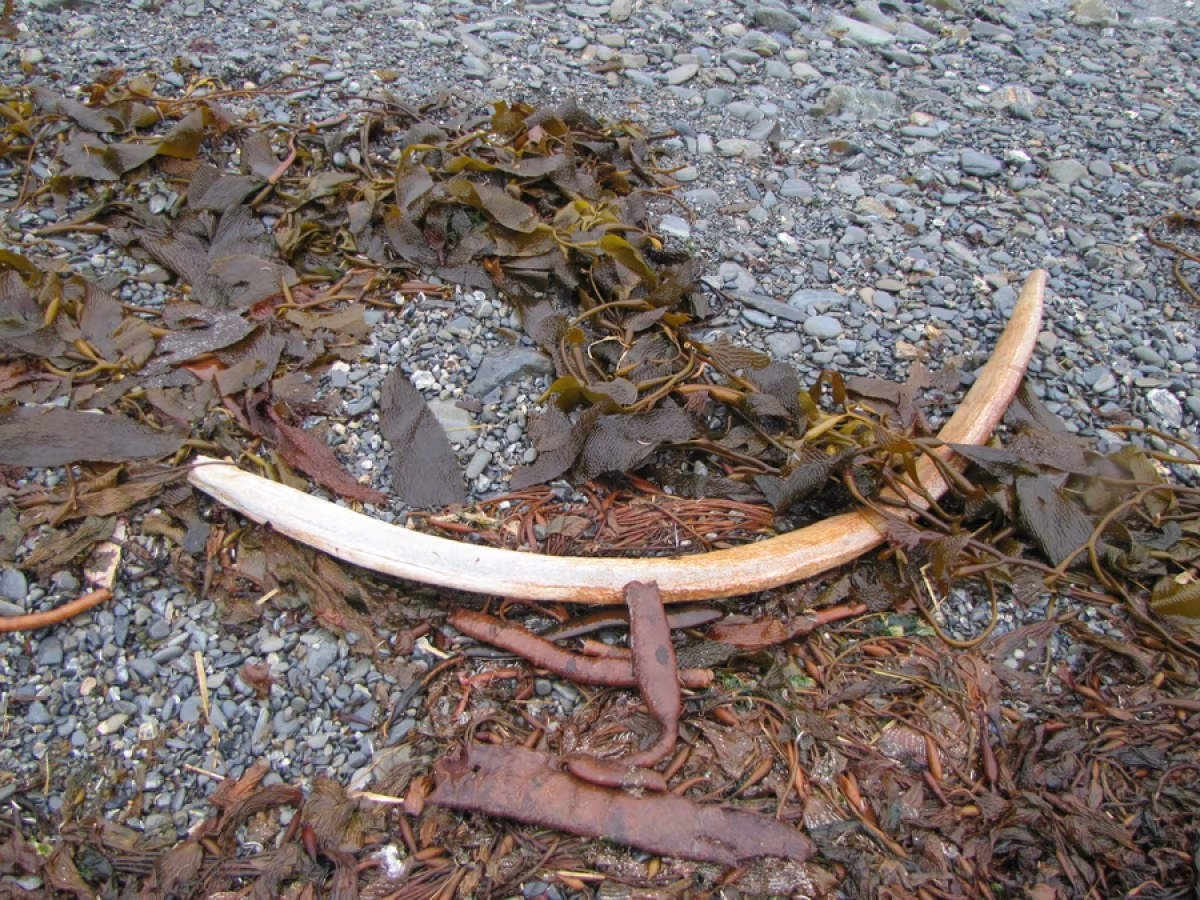
You and your cub feed quickly, but you stay no longer than you have to.
As you leave the two males, you feel the flesh of the whale joining your own, great currents of life galloping through all the secret tunnels of your body.
And because you feel this, you know your cub feels it too.
You can already hear it in his steadier breathing, stronger footfalls.
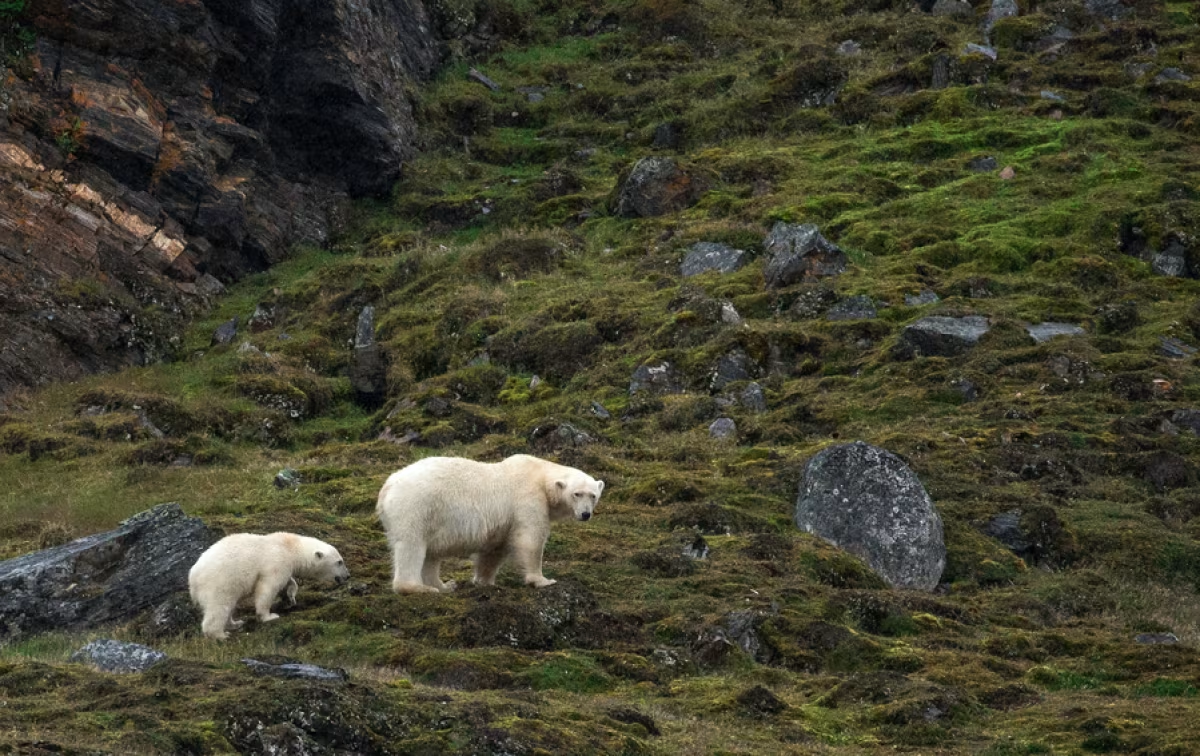
New scents immediately greet you as you gain more distance from the whale. Choosing the most insistent one, you track it toward higher ground.
But even as you do this, a familiar noise draws your attention.
Beyond the beach, far out on the wide, glittering bay, something large sits at rest. You’ve seen things like it before, though whether they’re creatures or landmasses you’ve never quite decided, so enormous and angular and heavy-footed they are.
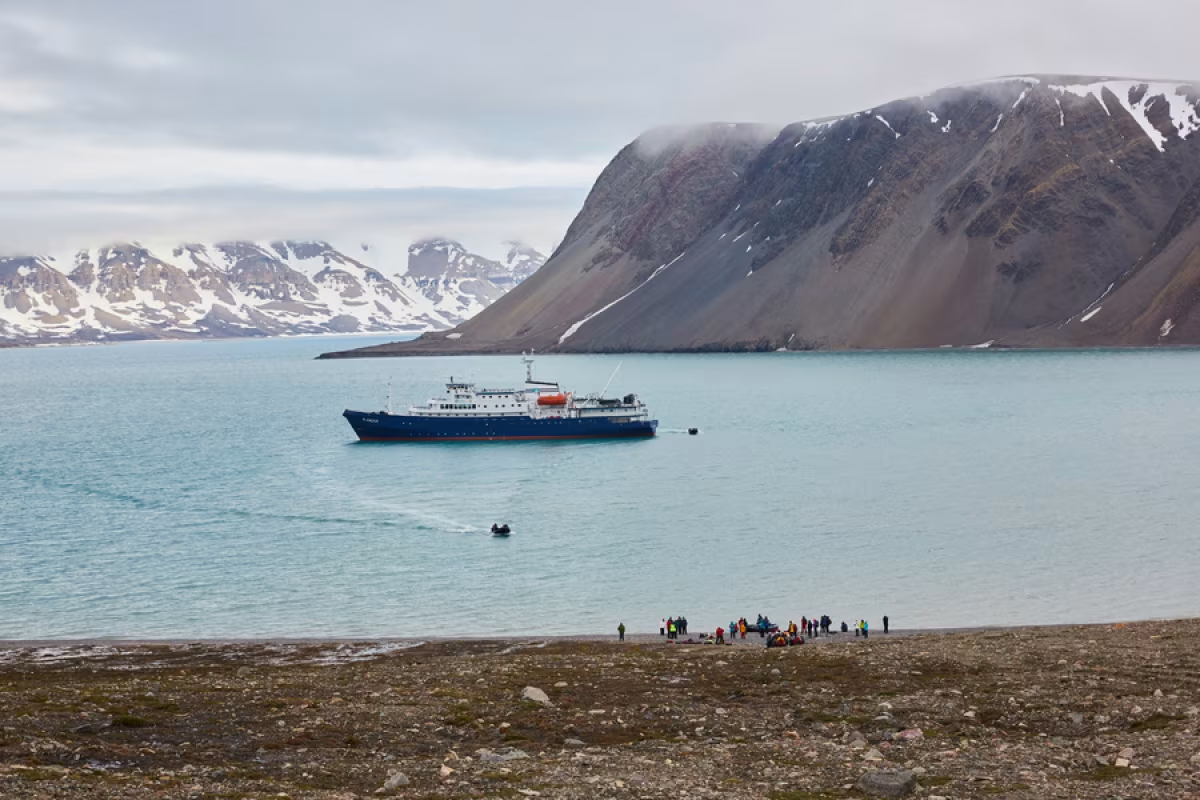
Skimming over the water away from it come smaller objects, gurgling as they approach. These things, whatever they are, are probably too fast to hunt.
They stop on the beach, and then even smaller creatures climb off their backs.
Looking back at your cub, you see how intrigued he is, so for a time you simply let him watch as these odd creatures, who always do a lot of jostling and noise-making and seem to have a very hard time just being still, scramble about on the far-off beach.
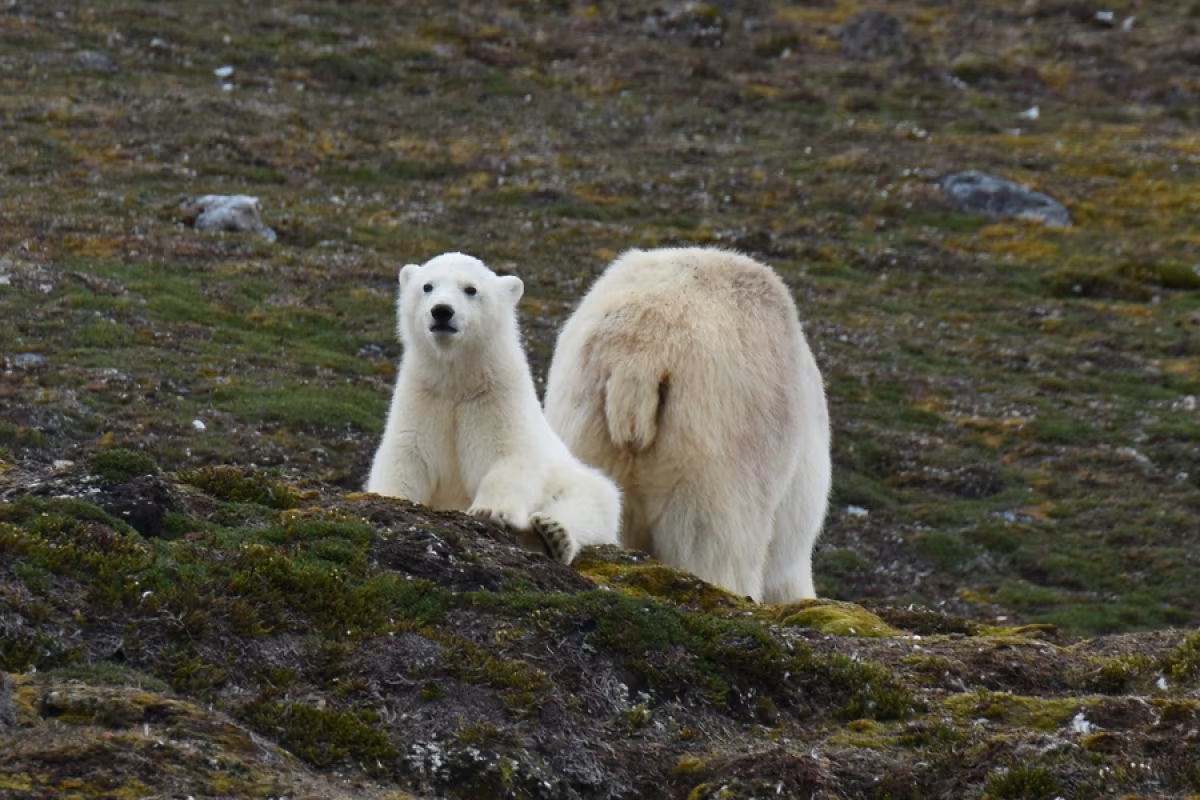
It isn’t long before you’ve both lost interest.
Continuing up the mossy slope, you lead your cub inland. The tundra rises beneath your feet, hardening from hills into mountains. Stone replaces moss, the air thins and cools.
And always the scents pull you on.
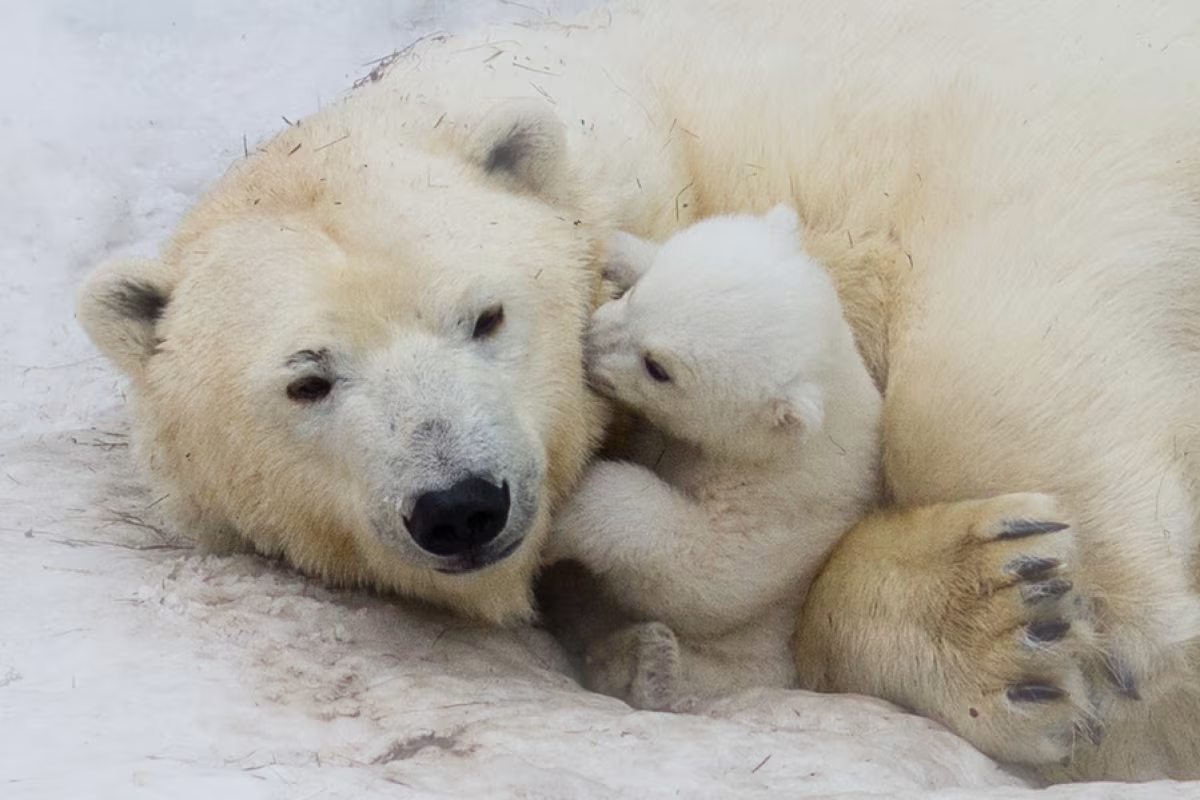
Their strange air-movements are the pungent exhalations of the earth, the vented lung of all things dead and living, coursing in constant transit through your body.
Some reach you as hints, some as commands, but however they arrive and whatever they speak of, their passage through you is like the shared heat of your cub’s beating heart against your own, the never-fading memory of its first breath into yours.
